Med News 01/2021
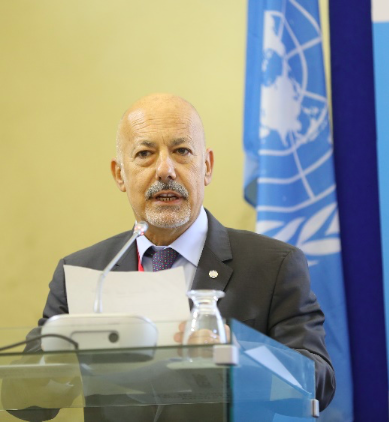
EDITORIAL l UNEP/MAP Coordinator Gaetano Leone
Full steam ahead
I will retire on 30 June 2021 after thirty-three years with the United Nations, including an action-packed seven years as the Coordinator of the UNEP/MAP-Barcelona Convention Secretariat. During these years, I have had the pleasure to work with exceptional and committed individuals and teams representing the Contracting Parties to the Barcelona Convention, the Secretariat and our partners, and I will keep fond memories of what was achieved under the banner of environmental multilateralism in this beautiful, but challenging basin.
I will also be thinking of what more could have been done to address the plight of the Mediterranean Sea and coast. For to me the Mediterranean is much more than a professional assignment. I am sure that many among the readers of this editorial—the last one I sign as the Coordinator of the UNEP/MAP-Barcelona Convention Secretariat—will relate: this semi-closed Sea and its beautiful coasts are at the heart of who we are as Mediterraneans—a defining feature of our identities.
While I am optimistic about the future, I cannot help but harbour concern about what would happen if the unprecedented triple crisis of climate change, pollution and biodiversity loss would be allowed to go unchecked. The answer to the question of how we will emerge, as a region, from the COVID-19 pandemic will have consequences that the next generations, not just the 512 million souls currently living around the rim of the Mediterranean, will have to reckon with in the not too distant future.
On 8 April the UNEP/MAP-Barcelona Convention Secretariat co-organised with the Geneva Environment Network and our colleagues of the UNEP Europe Office a reflection on making peace with nature and delivering on the Sustainable Development Goals (SDGs) in the Mediterranean. I told fellow panellists and participants that, according to science, the Mediterranean is on a collision course with nature, and that we need a green renaissance: a recovery from COVID-19 that would set the compass of Mediterranean economies towards greater sustainability and resilience. Resilience, as I meant it, refers to our collective ability to withstand shocks of the kind that would dwarf what the coronavirus pandemic has dealt us since early 2020.
The science that I mentioned is encapsulated in the “twin reports” sponsored by the UNEP/MAP-Barcelona Convention system: the State of the Environment and Development in the Mediterranean (SoED), produced by Plan Bleu, and the First Mediterranean Assessment Report (MAR 1) released by the network of Mediterranean Experts on Climate and environmental Change (MedECC). Both reports point towards a gathering storm.
Taking the pulse of the Mediterranean through rigorous monitoring has been one of the core functions of the UNEP/MAP-Barcelona Convention since its inception forty-five years ago. The system has also done a remarkable job in building a robust legal framework, but compliance and enforcement—or the lack thereof—remain an Achilles’ heel that is turning into a Sword of Damocles hanging over the Mediterranean and its people. Let me be clear: this is not just about technicalities of reporting under Multilateral Environmental Agreements. This is about seeing the gathering storm and steering our collective Ark to safety. We literally are in this together.
The full implementation of obligations that Mediterranean countries accepted under the Convention and its Protocols constitutes a crucial building block for the green renaissance that we wish to see in the region. Bolstering enforcement at the national level must remain our absolute priority.
The Renaissance was a period in European history marking the transition from the Middle Ages to Modernity through great social, economic and cultural change. Today, in the midst of this unprecedented crisis, Mediterranean countries stand at a crossroads. As we start the countdown to a post-COVID era, decision-makers are facing a momentous dilemma, especially in national contexts where economies had been in dire straits even before the novel coronavirus struck. Will it be a rush to resuscitate business-as-usual as soon as epidemiologically possible? Or will countries embark on a bold transformation of their economies?
The case for recovering better and greener is compelling. The green premium that must be paid today to bring about the required transformative change transcending economic sectors will be offset by the benefits economies and societies will reap from healthier ecosystems. Let us not forget that the crisis we are going through now was caused by a disease of zoonotic origin—the ultimate symptom of our dysfunctional relationship with nature.
We are doing everything we can to put the green renaissance on the Mediterranean agenda. As I prepare to leave my post, I am confident that my colleagues in the UNEP/MAP-Barcelona Convention Secretariat will stay the course.
The next Conference of the Parties (COP 22) in December 2021, hosted by Turkey, will examine a raft of new anti-pollution, pro-sustainability regional plans and decisions for adoption. The delegates will also review and approve the UNEP-MAP Medium-term Strategy 2022-2027. This conference can serve as a regional forum for a high-level policy dialogue on flicking the green switch in the Mediterranean.
I thank you all for the extraordinary support that you have given me during the past seven years as Coordinator of UNEP/MAP, and for having made it possible to progress together towards a solid and effective MAP system.
Arrivederci!
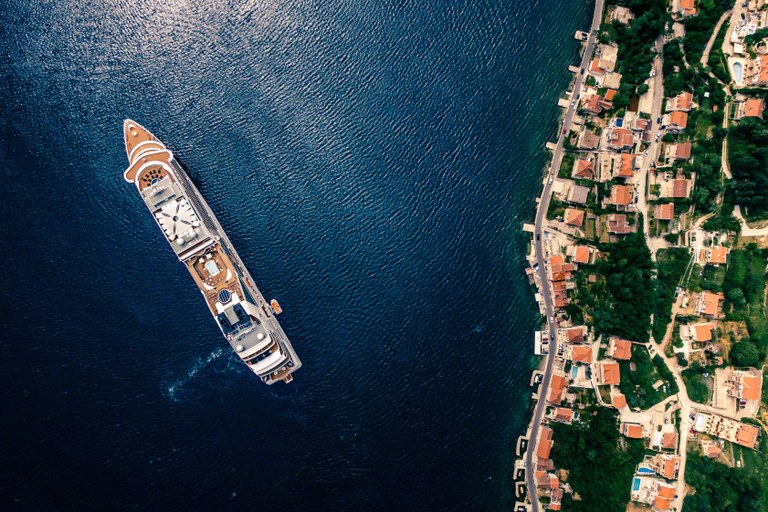
MEDOPEN
Regardless to COVID, PAP/RAC continues to organize virtual courses to teach Integrated Coastal Zone Management to students from Mediterranean faculties.
Even the Covid did not stop PAP/RAC and partner universities (the Faculty of Sciences of ...
Regardless to COVID, PAP/RAC continues to organize virtual courses to teach Integrated Coastal Zone Management to students from Mediterranean faculties.
Even the Covid did not stop PAP/RAC and partner universities (the Faculty of Sciences of Bizerte, Tunisia and the Faculty of Sciences and Techniques of Al Hoceima, Morocco) from organizing the 2020-2021 edition of the course of MedOpen dedicated to ICZM and intended for an audience of master's level students. However, the health context prompted the MedOpen team, made up of experts in ICZM, university professors and a PAP/RAC member, to be creative in carrying out the course. With a start of university courses delayed, very limited possibilities of meeting to work, inability to meet local actors (as students are used to doing in this training), everything seemed to compromise the smooth running of this course. However, it was without counting on the willingness of the supervisory team and of the 53 students to complete their task. In order to stimulate course participation and strengthen student cohesion, the team set up a one-hour weekly meeting from the 5th week of the course which gathered both teachers and students from the two faculties. These events, which brought together more than 35 participants per week, injected exceptional momentum into this 2020-2021 edition which ended with an excellent success rate. Congratulations to the entire teaching team and to the students for this success!
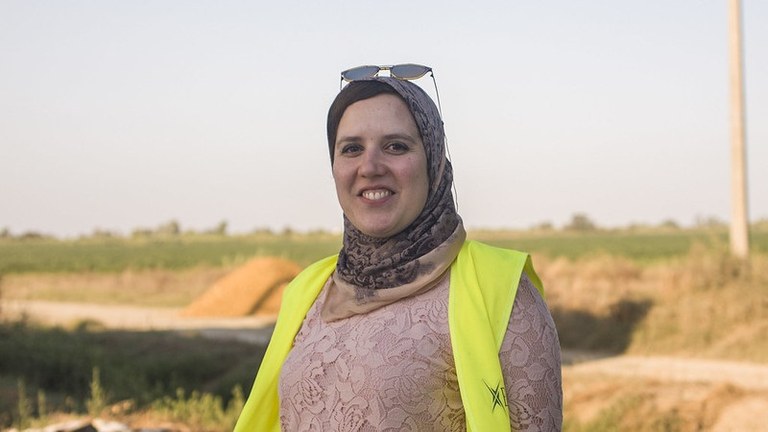
THESWITCHERS.ORG: AN INNOVATIVE AND FREE TOOL TO BOOST SUSTAINABLE ENTREPRENEURSHIP LAUNCHED BY SCP/RAC
The promotion of green jobs, green entrepreneurs and eco-innovation is identified as strategic objective by the Barcelona Convention. UNEP/MAP’s programme on green entrepreneurship takes a new turn with the launch of The Switchers.org, a web ...
The promotion of green jobs, green entrepreneurs and eco-innovation is identified as strategic objective by the Barcelona Convention. UNEP/MAP’s programme on green entrepreneurship takes a new turn with the launch of The Switchers.org, a web platform built on the success of SCP/RAC’s activities in support to green entrepreneurs in the Med.
The digital platform launched on the 30th of March enables interactions among the entrepreneurs, business providers, mentors and financial institutions willing to develop novel business models in the field of Green and Circular Economy and gathers all methodologies and tools developed by SCP/RAC.
Through its Toolbox, TheSwitchers.org provides its users with a unique set of methodologies and tools for sustainable business development that were designed and digitalized in order to make them accessible to the wider audience.
In addition to this, TheSwitchers.org hosts the SwitchersFund, the platform providing and facilitating direct funding and business support services to green entrepreneurs in the Mediterranean region as well as the Switchers Community website, the virtual place where entrepreneurs who share a common passion for the environment can meet. In the months to come, it will display a fourth section, the Policy Hub, which will enable the users to learn about enabling policies for sustainable businesses in the Mediterranean.
A virtual event dedicated to the presentation of this new platform and putting special emphasis on the Toolbox will be held on the 28th of April. Experts will make a demonstration of its different tools while participants will have the opportunity to directly interact asking their questions.

WELCOME TO THE MEDITERRANEAN SUSTAINABILITY AWARD
SCP/RAC is launching the WeMed Award, a flagship initiative of the MSSD to promote an inclusive transition to sustainability in the Mediterranean and recognise success stories of sustainable businesses and public authorities supporting them.
...
SCP/RAC is launching the WeMed Award, a flagship initiative of the MSSD to promote an inclusive transition to sustainability in the Mediterranean and recognise success stories of sustainable businesses and public authorities supporting them.
Sustainable businesses are key drivers for the transition towards a green, circular and blue economy in the Mediterranean, but they need an enabling policy environment to thrive. This new award aims to recognise the work of innovative green entrepreneurs from Southern Mediterranean countries, as well as the efforts undertaken by other actors in the entrepreneurship ecosystem to support them, such as public authorities, financial institutions, Business Support Organisations or civil society organisations.
Why a Mediterranean award?
At the COP21, the Contracting Parties requested that the Barcelona Convention System, through the Regional Activity Centre for Sustainable Consumption and Production (SCP/RAC), launch the first edition of a Mediterranean business award for environmental innovation, as a flagship initiative of the Mediterranean Strategy for Sustainable Development (MSSD).
There are many awards highlighting eco-innovations in Europe, but the benchmarking study conducted by SCP/RAC highlighted that there aren’t as many awards recognising these kinds of achievements in Southern Mediterranean countries.
The award will shine a light on sustainable businesses from Southern Mediterranean countries that contribute to sustainable and fair consumption and production models. Therefore, the core selection criteria will be related to environmental, social and economic value creation.
Moreover, the award aims to raise awareness about the challenges that sustainable entrepreneurs face and the important role of other actors in working together and strengthening the supporting ecosystem.
Recognising gender equality
When developing the award, gender mainstreaming was an important aspect that was taken into account. The award will reward participants that have implemented measures to ensure gender equality in their sustainable initiatives. Moreover, the jury will be gender and geographically-balanced, being formed by four female and three male experts from Northern and Southern Mediterranean countries.
Practical information
Each edition will have a different thematic focus and different categories of participants.
For the 2021 edition, the categories invited to apply are A) Sustainable Businesses (both at early and growth stage) and B) Public Authorities.
The prize will consist of a cash award of 10,000€ or 15,000€ for Sustainable Businesses and an honorary award combined with a study visit for the Public Authorities.
The call for applications will be opened during the month of May for 30 days, and the winners will be announced in October 2021.
All the information is available at www.wemedaward.org
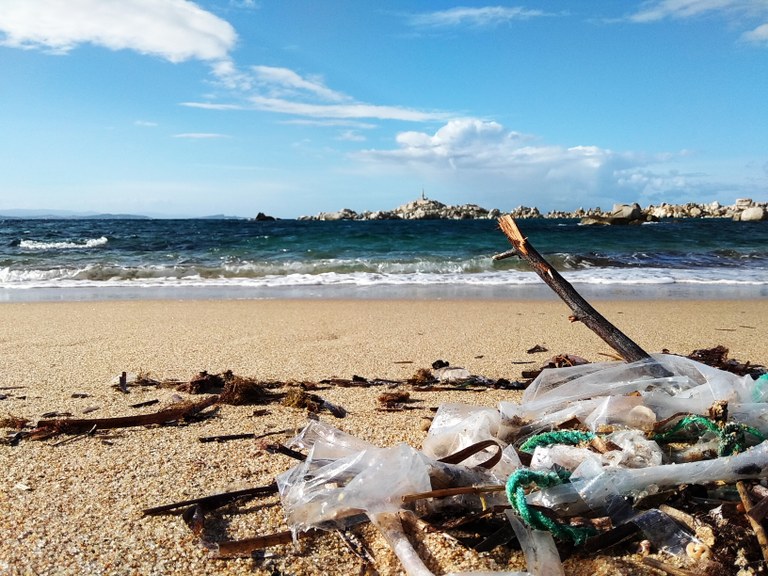
CAPIMED-ISLANDS PROJECT WEBINAR: CAPITALISING INITIATIVES TO REDUCE PLASTIC POLLUTION IN MEDITERRANEAN ISLANDS
Bringing Mediterranean islands together to stop plastic pollution through the BeMed initiative is the title of the webinar to kick-off the CapiMed-Islands project, which took place last 25th March, co-organised by SCP/RAC and SMILO during the Monaco ...
Bringing Mediterranean islands together to stop plastic pollution through the BeMed initiative is the title of the webinar to kick-off the CapiMed-Islands project, which took place last 25th March, co-organised by SCP/RAC and SMILO during the Monaco Ocean Week.
CapiMed-Islands is a capitalisation process of plastic leakage prevention in islands, which is related to various initiatives and instruments within the Barcelona Convention, such as the Regional Plan for the Management of Marine Litter and the Post-2020 Strategic Action Programme for the Conservation of Biological Diversity in the Mediterranean (Post-2020 SAP BIO). SCP/RAC, as part of the UNEP/MAP system, is committed to liaise with key initiatives on islands to bring their key elements into regional policies.
The event was conceived as an on line meeting with the five modular projects, winners of the call for projects for the Mediterranean islands last 2020, and other micro initiatives supported by BeMed to update on projects activities and bring them together through a capitalisation process conducted by CapiMed-Islands project. The tools, results and lessons learned will be transferred and shared to other islands and their representation in regional policies such as the Barcelona Convention and other capitalisation programmes will be ensured.
Individual projects related to tackle plastic pollution in islands, even if they achieve great results at island level, could limit its impact because of limitation in time and space, no harmonized approaches, insufficient replicability and lack of human resources and specific knowledge by local stakeholders to prevent effectively plastic pollution.
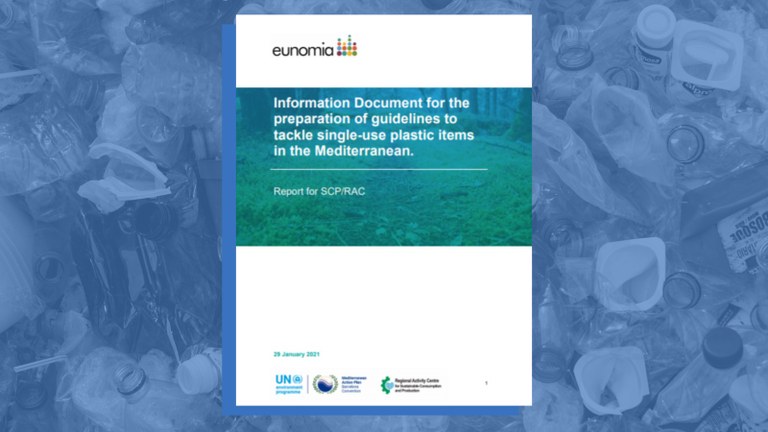
NEW RESEARCH OUTLINES MOST APPROPRIATE POLICY MEASURES FOR REDUCING SINGLE USE PLASTIC LITTER IN THE MEDITERRANEAN
The marine plastic problem in the Mediterranean is extensive, with 229,000 tonnes of plastic litter estimated to leak into the sea every year. Despite only covering 1% of the world’s ocean, the Mediterranean is estimated to hold up to 55% of all ...
The marine plastic problem in the Mediterranean is extensive, with 229,000 tonnes of plastic litter estimated to leak into the sea every year. Despite only covering 1% of the world’s ocean, the Mediterranean is estimated to hold up to 55% of all floating ocean plastic particles and concentrates 7% of all global microplastics.
The Regional Activity Centre for Sustainable Consumption and Production (SCP/RAC) in collaboration with Eunomia Research & Consulting, published an information document on the production, consumption, end of life management and impacts associated with beverage bottles, including caps and lids; food containers (bowls, clamshells, trays); straws and cigarette filters in Egypt, Morocco, Montenegro and Greece.
The information document will support the development of regional guidelines to tackle single-use plastic pollution in the Mediterranean. The guidelines are being developed by SCP/RAC as requested by the Contracting Parties to the Barcelona Convention during the COP21. Once finalized, the guidelines will be put forward for adoption at the Barcelona Convention COP22 meeting in December 2021.
Introducing Deposit return systems (DRS) and extended producer responsibility (EPR) schemes are the most successful policy measures at reducing single-use plastic litter while having positive economic and employment impacts in the Mediterranean region, according to this new research carried by Eunomia and commissioned by SCP/RAC.
The information document reports that introducing a DRS was the most successful policy measure in reducing marine plastic litter, showing it would prevent a combined 16,000 tonnes of marine litter by 2030, as well as saving 620,000 tonnes of CO2 equivalent. This figure is equivalent to emissions from approximately 240,000 citizens (total population of 4 studied countries countries is circa. 150 million).
Meanwhile, an EPR system would prevent 10,000 tonnes of marine litter, and was shown to be the most impactful in terms of reducing the item count of single-use plastic items, reducing the number of items covered by the system ending up as marine litter by 55%.
The combination of DRS and EPR would imply a reduction in litter equivalent to nearly 1,700 truck-loads of plastic waste per year in the Mediterranean sea.
Both a DRS and EPR system would also have a significant positive economic impact, with a DRS creating 11,500 jobs and saving €15 million in waste management costs, and both measures saving millions of euros in external environmental costs - €2.2 billion for a DRS and €1.4 billion for an EPR.
A number of recommendations for the regional policy guidelines are included in the document:
- improve waste collection and separation, particularly along coastal areas and waterways;
- use bans on single-use plastic items and levies on other single-use items side by side to maximise their effect;
- implement a DRS for beverage containers;
- implement nationwide drinking water and refill systems;
- improve data availability and data collection; and
- maximise the sorting of plastics from residual waste prior to landfill or energy recovery.

WEBINAR ORIENTATIONS & PERSPECTIVES FOR SUSTAINABLE DEVELOPMENT IN TUNISIA
On February 16th, Plan Bleu organized in collaboration with the Tunisian Ministry of Local Affairs and Environment (DGDD), with the support of the Regional Activity Center for Specially Protected Areas and Biological Diversity (SPA/RAC), a ...
On February 16th, Plan Bleu organized in collaboration with the Tunisian Ministry of Local Affairs and Environment (DGDD), with the support of the Regional Activity Center for Specially Protected Areas and Biological Diversity (SPA/RAC), a conference on conclusions and recommendations of the State Report on the Environment and Development in the Mediterranean and their application in the Tunisian context. Tunisia is now facing several challenges of sustainable development in relation to the orientations recommended by the new Constitution of 2014: decentralization, integrated approaches to development, as well as citizenship and public participation in decision making.
Faced with major challenges, Tunisia now finds itself obliged to radically change its strategies. Policies mobilizing many actors and stakeholders are thus integrated into spatial planning that responds to local needs. More than 130 people registered for this conference where representatives of the Tunisian Ministry of Local Affairs and the Environment spoke alongside representatives of Plan Bleu, UNEP/Mediterranean Action Plan and other organizations. Three lines of thought were proposed to participants in the light of the SoED recommendations:
• territorial governance of sustainable development at the national, regional and local levels and the challenges of decentralization and sustainable development planning at the local level;
- integrated approaches for sustainable development in Tunisia, key sectors and the management of cross-cutting issues such as climate change and loss of biodiversity;
- involvement of the public and stakeholders, especially young people and women, in planning for sustainable development.
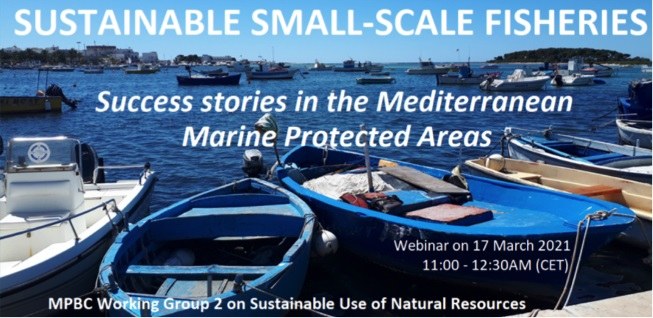
WEBINAR ON THE SUCCESSES OF SUSTAINABLE ARTISANAL FISHING (SSF) IN MEDITERRANEAN MARINE PROTECTED AREAS (MPAS)
The Mediterranean Biodiversity Protection Community (MBPC) and its working group 2 on the sustainable use of natural resources have organized last March 17, a webinar on the successes of sustainable artisanal fishing (SSF) in marine protected areas ...
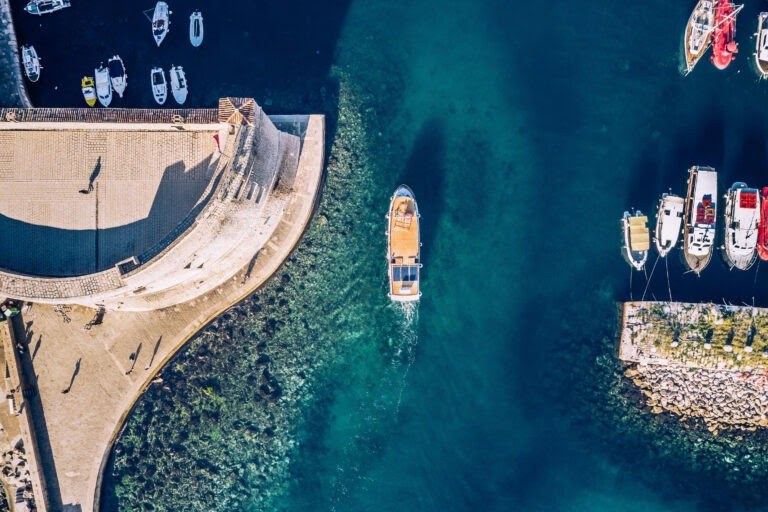
BLUEMED CLOSING CONFERENCE: PRESENTATION OF THE START-UP ACTIONS AND THEIR RESULTS
On February 24, 2021, the results of the 4 Start-up Actions were presented, including BlueBoatsMed managed by Plan Bleu. Coordinated by Lina Tode, this project addresses foresight on cruises, recreational boating and yachting, their potential for ...
On February 24, 2021, the results of the 4 Start-up Actions were presented, including BlueBoatsMed managed by Plan Bleu. Coordinated by Lina Tode, this project addresses foresight on cruises, recreational boating and yachting, their potential for transition to a blue economy in the Mediterranean and the associated environmental challenges. In a participative approach, involving NGOs, the private sector and the scientific community, the project was organized around brainstorming workshops and led to the drafting of a short foresight report. The results were presented on February 24 during a dedicated session of the closing conference of the overall BLUEMED initiative.

REGIONAL MEETING OF NATIONAL EXPERTS ON THE POST-2021 MEDITERRANEAN STRATEGY FOR PREVENTION OF AND RESPONSE TO MARINE POLLUTION FROM SHIPS
On March 10th2021 REMPEC organised the Regional (Online) Meeting of National Experts on the Post-2021 Mediterranean Strategy for Prevention of and Response to Marine Pollution from Ships. The meeting gathered 100 representatives from 21 out of 22 ...
On March 10th2021 REMPEC organised the Regional (Online) Meeting of National Experts on the Post-2021 Mediterranean Strategy for Prevention of and Response to Marine Pollution from Ships. The meeting gathered 100 representatives from 21 out of 22 Contracting Parties to the Barcelona Convention and its Protocol as well as well as representatives from relevant regional and international organisations. The meeting agreed upon a set of conclusions and recommendations and on the Draft Mediterranean Strategy for the Prevention of, and Response to Marine Pollution from Ships (2022-2031) and its Action Plan on global priorities
- oil and chemical pollution,
- climate change,
- air emission,
- marine litter,
- non-Indigenous Species,
- spacial planning and designation of special areas.
“To implement the actions proposed for the next ten years, it will be crucial to coordinate initiatives and processes and build on past and ongoing efforts so as to increase the effectiveness of the resources mobilized for this strategy,” Mr. Leone said in his statement.
Workshops for cleaner air in the Mediterranean
In close cooperation with IMO, REMPEC organised on November 25th and December 10th 2020 the virtual National Workshop on Ratification and Effective Implementation of MARPOL Annex VI for Egypt, Algeria and Lebanon. The national workshop aimed to
- give knowledges of the requirements for implementation and enforcement of MARPOL Annex VI,
- address the specific concerns of the national stakeholders,
- discuss about the possible designation of the Mediterranean Sea, as a whole, as an Emission Control Area for Sulphur Oxides (Med SOx ECA).
These activities were implemented in the context of the implementation of the Road Map for a Proposal for the Possible Designation of the Mediterranean Sea, as a whole, as an Emission Control Area for Sulphur Oxides Pursuant to MARPOL Annex VI, within the Framework of the Barcelona Convention. The current status of implementation of the Road Map is presented here.
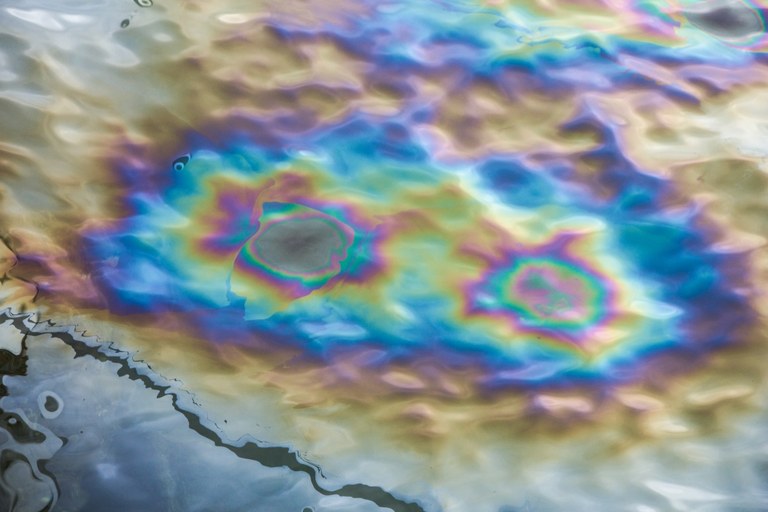
REMPEC ASSISTANCE ON ISRAEL OIL SPILL INCIDENT
On Wednesday 17th February 2021, REMPEC received a request of assistance from the competent authorities of Israel, with regards to the beaching of a large quantities of tar balls, on the Israeli shoreline. Approximately 480 tonnes of oiled waste ...
On Wednesday 17th February 2021, REMPEC received a request of assistance from the competent authorities of Israel, with regards to the beaching of a large quantities of tar balls, on the Israeli shoreline. Approximately 480 tonnes of oiled waste have been collected and transferred to a hazardous waste site. Within the activation from REMPEC of the Mediterranean Assistance Unit to obtain results of forecasting model from the Mediterranean Operational Network for the Global Ocean Observing System (MONGOOS), REMPEC established contact with neighbouring countries to address the possible pollution on their shoreline. To speed up the investigation REMPEC liaised with the Maritime Support Service (EMSA) and the Emergency Response Coordination Centre (ERCC) to obtain satellite image of possible source of pollution. Remote assistance was providing with the support of experts from Cedre and ISPRA.
MTCC Africa
In collaboration with REMPEC, MTCC Africa hosted, the Webinar for Climate Change Mitigation in the Shipping and Maritime Industry with a Focus on North African States bordering the Mediterranean Sea. The virtual webinar targeted Maritime Administrations, Port Authorities, and line Ministries in the Northern Africa Region bordering the Mediterranean Sea.
The participants highlighted the need to promote Climate change mitigation in the shipping and maritime industry through the ratification, transposition into national law and effective implementation of MARPOL Annex VI.
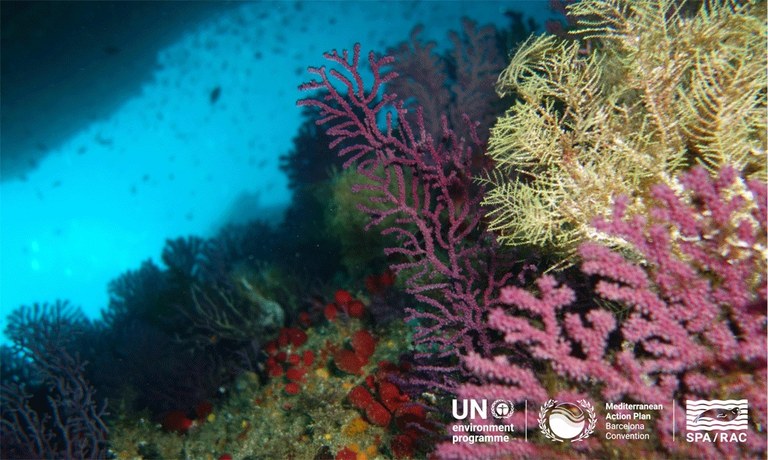
SUB-REGIONAL WORKSHOPS FOR THE ELABORATION OF THE POST 2020 SAPBIO
UNEP/MAP-SPA/RAC is organizing 4 workshops to be held from 26 February to 07 April 2021, to identify the priorities for marine and coastal biodiversity conservation in each Mediterranean subregion. The post-2020 SAPBIO process has so far mobilized ...
UNEP/MAP-SPA/RAC is organizing 4 workshops to be held from 26 February to 07 April 2021, to identify the priorities for marine and coastal biodiversity conservation in each Mediterranean subregion. The post-2020 SAPBIO process has so far mobilized more than 320 national experts and partners in its national consultation phase.
In 2003, the Contracting Parties to the Barcelona Convention adopted during the COP13 the “Strategic Action Programme for the Conservation of Biological Diversity in the Mediterranean Region” (SAPBIO). For more than 15 years, the SAPBIO served as a strategic framework for implementation of the SPA/BD Protocol. A new strategy “Post-2020 Strategic Action Programme for the Conservation of Biodiversity and Sustainable Management of Natural Resources in the Mediterranean Region” is now being prepared by UNEP/MAP-SPA/RAC, as requested by the Barcelona Convention COP21, to replace the previous one. This strategy will be aligned with the Sustainable Development Goals and harmonised with the CBD Post-2020 Global Biodiversity Framework.
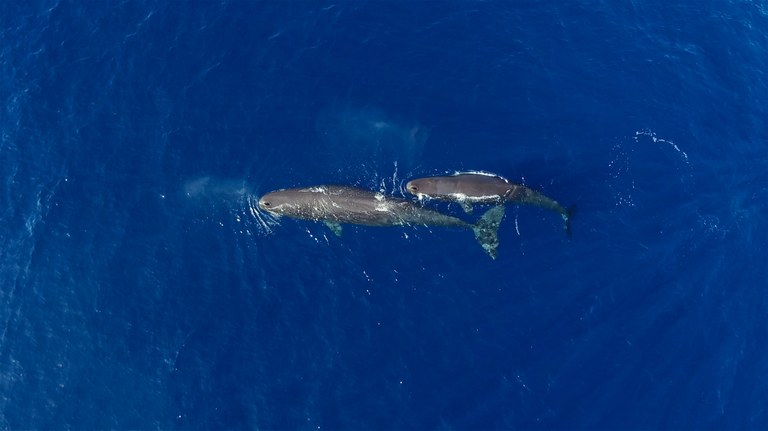
QUIETMED 2 PROJECT: A LOOK BACK AT THE MAJOR ACHIEVEMENTS OF THE PROGRAMME ON UNDERWATER NOISE FOR THE MEDITERRANEAN
Between February 2019 and January 2021, UNEP/MAP-SPA/RAC has been associated with one of the finest initiatives to combat underwater noise in the Mediterranean and protect marine fauna. Here is an overview of what has been achieved.
Underwater ...
Between February 2019 and January 2021, UNEP/MAP-SPA/RAC has been associated with one of the finest initiatives to combat underwater noise in the Mediterranean and protect marine fauna. Here is an overview of what has been achieved.
Underwater noise is one of the most prevalent threats in the world's oceans. Although its impact on wildlife is recognized, the basic data to be used in management and monitoring programs are still largely lacking.
To overcome this problem in the Mediterranean, 11 organizations, including SPA/RAC, have joined forces to develop the joint Good Ecological Status assessment program for descriptor 11 - Underwater noise in the Mediterranean (QUIETMED 2), coordinated by the Technological Center of the Sea (CTN).
This program is in line with the following objective: "the impact of noise from human activities on marine and coastal ecosystems is not significant", referred to both by the Strategic Framework Directive for the Marine Environment (MSFD) of the European Union and by the Ecosystem Approach (EcAp) of the Barcelona Convention in the Mediterranean.
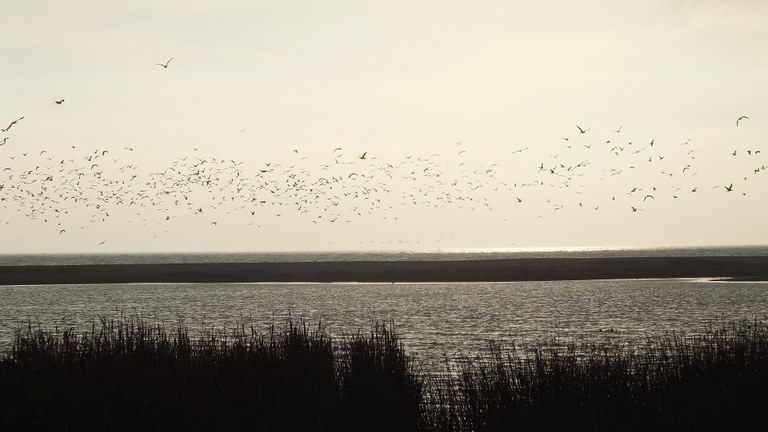
WORKING FOR HEALTHY COASTAL WETLANDS IN THE MEDITERRANEAN
The theme of the 2021 edition of World Wetlands Day (2 February) is “Wetlands and water”. It is an occasion to ponder the crucial role of Mediterranean wetlands.
Wetlands provide numerous ecosystem services that include the purification of water, ...
The theme of the 2021 edition of World Wetlands Day (2 February) is “Wetlands and water”. It is an occasion to ponder the crucial role of Mediterranean wetlands.
Wetlands provide numerous ecosystem services that include the purification of water, the mitigation of floods and droughts, groundwater replenishment, sediment retention and carbon sequestration. Within Mediterranean ecosystems, wetlands are particularly important for biodiversity. Although they occupy approximately 2 per cent of the land area, they are home to more than 30 per cent of the basin’s vertebrate species. It is estimated that there are twice as many endangered species in wetlands than in all Mediterranean ecosystems combined.
The State of the Environment and Development in the Mediterranean (SoED) indicates that the basin hosts up to 26 million hectares of wetlands. According to a broad sample of 400 wetland sites, 48 per cent of natural wetland habitats were lost between 1970 and 2013. The degradation is mainly caused by human activities such as dam building or drainage. A study quoted in SoED revealed that, in a sample of five Mediterranean coastal watersheds, wetlands lost 20 per cent of the capacity to mitigate the impacts of floods, mainly due to the conversion of natural habitats into agricultural and urban zones, and intense development of human activities in areas prone to flooding.
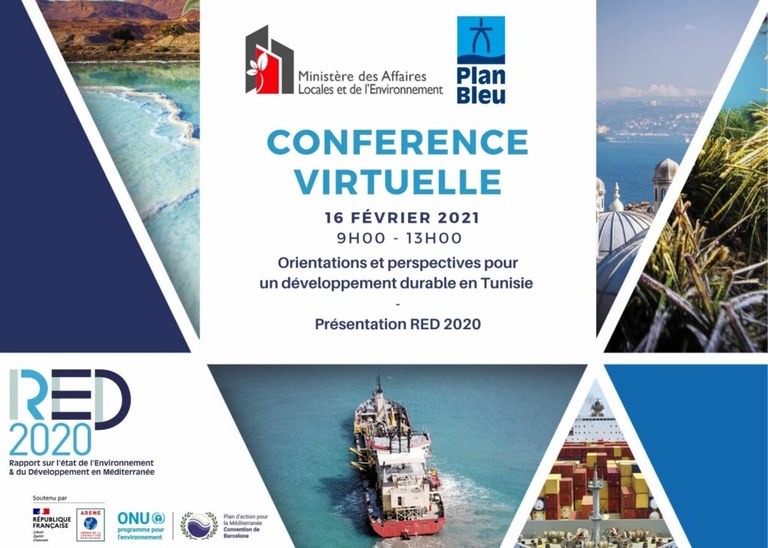
TUNISIA HOSTS CONFERENCE ON THE FINDINGS OF SOED
On 16 February 2021 Plan Bleu, a Regional activity Centre of UNEP/MAP, and the Tunisian Ministry of Local Affairs and Environment co-organized an online conference on the State of the Environment and Development in the Mediterranean (SoED) report ...
On 16 February 2021 Plan Bleu, a Regional activity Centre of UNEP/MAP, and the Tunisian Ministry of Local Affairs and Environment co-organized an online conference on the State of the Environment and Development in the Mediterranean (SoED) report and how its findings can feed into plans for sustainable development in Tunisia.
With the support of the (SPA /RAC), the conference supported by ADEME (France) highlighted the findings of SoED to stakeholders and practitioners involved in environmental management and development planning, including civil society.
According to SoED, rising inequality, biodiversity loss, the growing impact of climate change and unrelenting pressure on natural resources can lead to irreversible environmental damage in the Mediterranean basin. The region is not on track to achieving the Sustainable Development Goals (SDGs). Unless urgent and resolute action is taken to halt current trends, environmental degradation could have serious and lasting consequences for human health and livelihoods in the region.
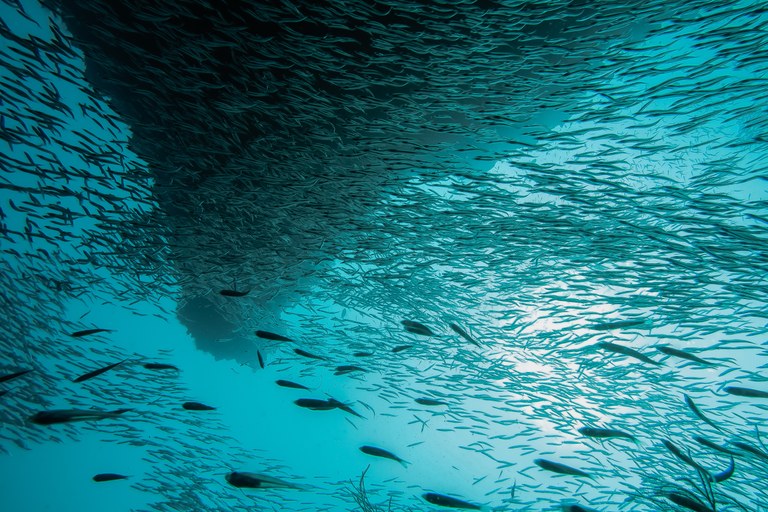
FISH STOCKS COULD RECOVER IF 30 PER CENT OF THE MEDITERRANEAN IS PROTECTED BY 2030
A new report titled "30 by 30: Scenarios to recover biodiversity and rebuild fish stocks in the Mediterranean" by WWF sheds new light on the importance of conservation and advocates for bolder action to ensure that 30 per cent of the Mediterranean ...
A new report titled "30 by 30: Scenarios to recover biodiversity and rebuild fish stocks in the Mediterranean" by WWF sheds new light on the importance of conservation and advocates for bolder action to ensure that 30 per cent of the Mediterranean Sea be protected by 2030—an objective under negotiation within the UN Convention for Biological Diversity (CBD) and enshrined in two landmark strategic plans currently being prepared by SPA/RAC, the UNEP/MAP Regional Activity Centre for Specially Protected Areas, under the Barcelona Convention.
The two strategic plans currently under development – namely the post-2020 Strategic Action Programme for the Conservation of the Biological Diversity in the Mediterranean Region (SAPBIO), and the post-2020 Regional Strategy for Marine Protected Areas (MPAs) and Other Effective Area-based Conservation Measures (OECMs)— will be submitted to the 22nd Meeting of the Contracting Parties to the Barcelona Convention and its Protocols (COP 22, December 2021, Antalya, Turkey) for adoption.
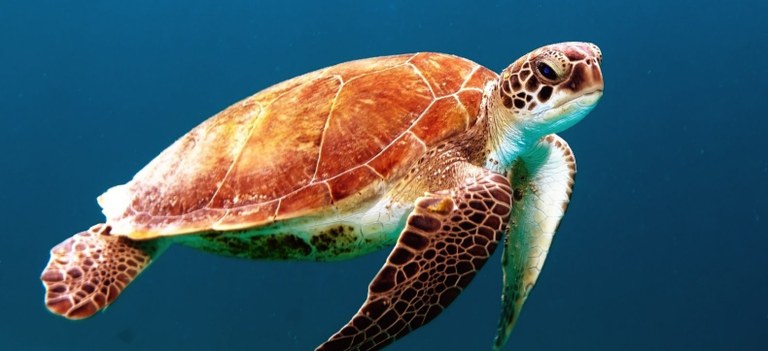
EFFECTIVE IMPLEMENTATION OF THE BARCELONA CONVENTION HELPS ASPIRING EU MEMBERS ALIGN WITH ACCESSION REQUIREMENTS
The UNEP/MAP Barcelona Convention Secretariat participated in the Online Sub-Regional Workshop titled “Assistance for the implementation of the Barcelona Convention” that the Technical Assistance and Information Exchange Instrument of the European ...
The UNEP/MAP Barcelona Convention Secretariat participated in the Online Sub-Regional Workshop titled “Assistance for the implementation of the Barcelona Convention” that the Technical Assistance and Information Exchange Instrument of the European Commission (TAIEX) organized online on 16-17 February 2021.
The workshop took place in the context of the project titled “EU Environment Partnership Programme for Accession (EPPA) in the Western Balkans and Turkey”. Representatives of Albania, Bosnia and Herzegovina, Montenegro, and Turkey tackled challenges and capacity gaps hindering the effective implementation of the Barcelona Convention and three of its seven protocols, namely the Land-Based Sources Protocol, the Specially Protected Areas and Biological Diversity Protocol, and the ICZM Protocol.

HORIZON EUROPE’S FIRST STRATEGIC PLAN 2021-2024
The European Commission recently adopted the first strategic plan for Horizon Europe, the new EU research and innovation programme worth €95.5 billion in current prices. The strategic plan is a novelty in Horizon Europe and sets the strategic ...
The European Commission recently adopted the first strategic plan for Horizon Europe, the new EU research and innovation programme worth €95.5 billion in current prices. The strategic plan is a novelty in Horizon Europe and sets the strategic orientations for the targeting of investments in the programme's first four years. It ensures that EU research and innovation actions contribute to EU priorities, including a climate-neutral and green Europe, a Europe fit for the digital age, and an economy that works for people.
The strategic plan sets out four strategic orientations for research and innovation investments under Horizon Europe for the next four years:
- Promoting an open strategic autonomy by leading the development of key digital, enabling and emerging technologies, sectors and value chains;
- Restoring Europe's ecosystems and biodiversity, and managing sustainably natural resources;
- Making Europe the first digitally enabled circular, climate-neutral and sustainable economy;
- Creating a more resilient, inclusive and democratic European society.
The priorities set out in Horizon Europe's strategic plan will be implemented through the Horizon Europe work programme. It sets out funding opportunities for research and innovation activities through thematic calls for proposals and topics. The first calls for proposals will be launched in the spring of 2021 and will be presented at the European Research and Innovation Days on 23-24 June.
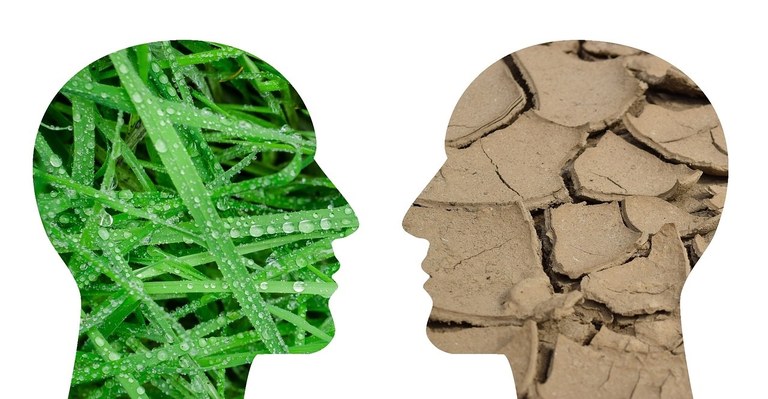
A NEW EU STRATEGY ON ADAPTATION TO CLIMATE CHANGE
The European Commission adopted last 24 February a new EU Strategy on Adaptation to Climate Change, setting out the pathway to prepare for the unavoidable impacts of climate change. While the EU does everything within its power to mitigate climate ...
The European Commission adopted last 24 February a new EU Strategy on Adaptation to Climate Change, setting out the pathway to prepare for the unavoidable impacts of climate change. While the EU does everything within its power to mitigate climate change, domestically and internationally, we must also get ready to face its unavoidable consequences. From deadly heatwaves and devastating droughts, to decimated forests and coastlines eroded by rising sea levels, climate change is already taking its toll in Europe and worldwide. Building on the 2013 Climate Change Adaptation Strategy, the aim of the strategy is to shift the focus from understanding the problem to developing solutions, and to move from planning to implementation.
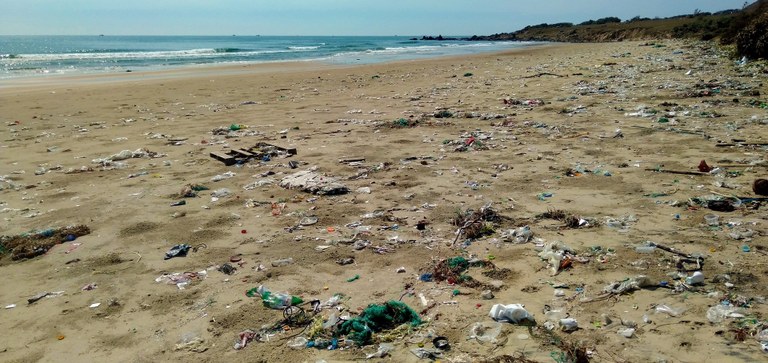
A NEW EUROPEAN PLASTIC TAX
On their way to the adoption of the multiannual financial framework for 2021-2027 and the recovery package, the EU Council approved on 14 December 2020 a Decision on legislative acts forming part of the package and laying down the EU budgetary ...
On their way to the adoption of the multiannual financial framework for 2021-2027 and the recovery package, the EU Council approved on 14 December 2020 a Decision on legislative acts forming part of the package and laying down the EU budgetary framework for the coming years. Member States shall adopt the Decision in accordance with their respective constitutional requirements.
Once into force the decision will introduce a new contribution from Member States based on non-recycled plastic packaging waste. The uniform call rate shall be EUR 0,80 per kilogram of non-recycled plastic waste and the Decision also envision an annual lump sum reduction for certain Member States.
Set in accordance with the European strategy, the national contributions will be proportional to the quantity of plastic packaging waste that is not recycled in each Member State. In this way, it will be an incentive to reduce the consumption of single-use plastics, foster recycling and boost the circular economy. At the same time, Member States will be free to take the most suitable measures to achieve those goals, in line with the principle of subsidiarity.

LIFE PROGRAMME: EU INVESTS €121 MILLION
The European Commission announced an investment of €121 million for new integrated projects under the LIFE programme for the Environment and Climate Action. This funding – increased by 20% compared to last year – will promote the green recovery and ...
The European Commission announced an investment of €121 million for new integrated projects under the LIFE programme for the Environment and Climate Action. This funding – increased by 20% compared to last year – will promote the green recovery and help Belgium, Germany, Ireland, France, Hungary, Italy, Latvia, the Netherlands, Poland, Portugal and Slovakia to reach their green targets. These integrated projects are expected to channel significant additional funds, helping Member States to make use of other EU funding sources, including agricultural, structural, regional and research funds, as well as national funds and private sector investment.
Integrated projects improve citizens' quality of life by helping Member States comply with EU legislation in six areas: nature, water, air, waste, climate change mitigation and climate change adaptation. They support plans required to implement environmental and climate legislation in a coordinated manner and on a large territorial scale. The LIFE investment announced today is set to channel significant complementary funding from other EU sources, including agricultural, regional and structural funds, Horizon 2020, as well as national and regional actors and private investors.
